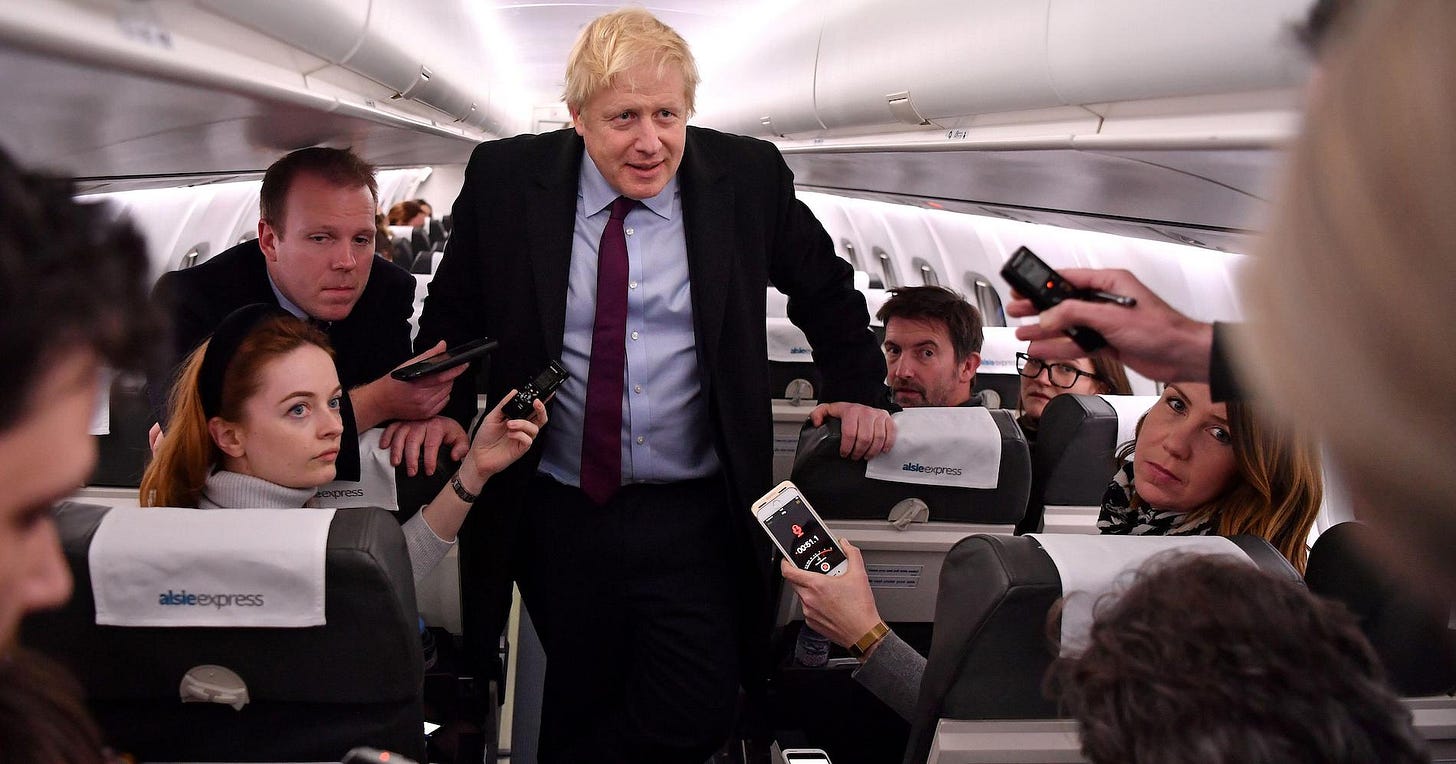Is political journalism broken?
The lobby system incentivises certain relationships between politicians and the press which are not healthy and which risk compromising our duty to readers.
The following piece is edited from remarks I am due to make at a panel discussion at the World Transformed Festival in Liverpool this evening, which is taking place in parallel to the Labour conference, where I will be until Wednesday.
If any Folded subscribers are at either event and would like to say hello, then do give me a shout.
Before we discuss whether political journalism is broken I think it’s important to define what we are talking about.
I think when most people talk about political journalism they’re talking about the ‘lobby’ - that small exclusive group of (mostly) white middle class men who are based inside the Houses of Parliament and attend regular ‘lobby briefings’ with the Prime Minister’s spokespeople.
I’ve been a member of the lobby for almost ten years now and in that time it has changed a great deal.
In some ways it has changed for the better. There’s definitely a lot more non-white journalists and there’s also broader range of publications represented too. When I first joined, I worked for Politics.co.uk, which was the first online-only publication to be given access to the lobby, and there was a definite snootiness from some of the established print journalists there towards us. Now there is a much larger range of publications inside, including newer outlets like Byline Times.
Social media has opened up the lobby system a great deal too. When it was originally formed, the lobby was quite literally a secret society and not only were lobby journalists not allowed to report what was said in briefings with the Prime Minister’s spokesman, but they weren’t even able to acknowledge that the briefings had taken place at all.
That’s no longer the case. And actually now, what is said inside lobby briefings is widely tweeted by members of the lobby and there was even an (abandoned) attempt by Boris Johnson’s government to televise the briefings.
However, while some parts of political journalism have become more open and more representative, other parts are now becoming significantly worse.
Keep reading with a 7-day free trial
Subscribe to Folded with Adam Bienkov to keep reading this post and get 7 days of free access to the full post archives.



